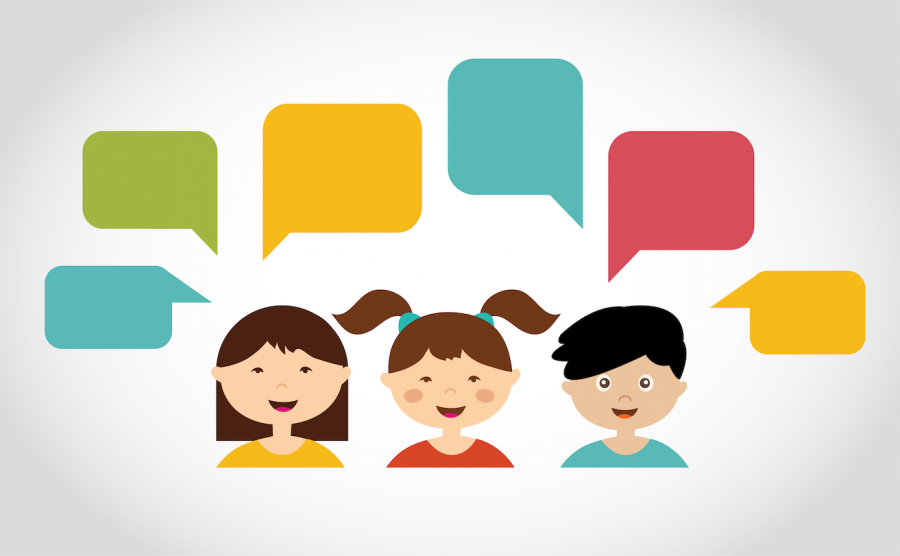Introduction
How /ˈɒf(ə)n/ do you know the English Pronunciation of a word? Do you know about the notation I used in the last sentence?
The notation I used is the Phonetics notation for the word “often”. Now try pronouncing it and check the following:
- Do you pronounce it with stress on ’t’?
- Or do you pronounce it with ’t’ silent?
Let me tell you a secret. Both are correct ways to pronounce “often”. However, the first one is correct in “American English” and the second one in “British English”. The phonetics notation for “often” in British English is “/ˈɒf(ə)n/”.
Let me give you a few more simple examples where we need to apply a similar logic – suggestion, combustion, education, and many more.
For example, the Indian/British pronunciation of “alternative” would focus on “alterNAtiv”’ while the American pronunciation would emphasise “alTERnative”. Quite a small difference making a huge impact, isn’t it?
In today’s world, we are using British and American English interchangeably. For example, our course-ware under CBSE or ICSE is in British English. However, we are bombarded with programmes, blogs, magazines, news, and what not which follow American English. The irony is this can lead to a lot of confusion for young minds.
If, as a nation, we want to speak English with the right pronunciation, even a basic knowledge of Phonetics can play a major role.
fəʊˈnɛtɪks
Note: We use Phonetics and Phonics interchangeably. Phonics is a simpler form of Phonetics and we usually use it with beginners and kids.
Lost in Translation
English is as good as my native language and I’m fluent in it. However, I was not always like this. My “mother-tongue” is Hindi. So when I started getting into debates, elocution, and speeches during my school days, I had to translate the sentences from Hindi to English, many times. Translations don’t always work out well and try doing that on the fly! Even today’s ubiquitous Google can’t do that with 100% accuracy.
So, the result was that sometimes what I spoke didn’t make sense. On top of that, since my mind was always focused on translating my thoughts, the pronunciation got impacted.
I now understand the aptness of the idiom “lost in translation”.
When something is translated into another language, and sometimes translated back into the original language, and because of differences of the languages, some of the original meaning is lost.
From Urban Dictionary
My experience with Phonetics

Coming back to phonetics, I faced the same problems with pronunciation kids face today. Phonetics was never an emphasised part of my school curriculum (CBSE) during my school days.
I was not sure of why we pronounce words in a certain way. I always used to wonder why there had to be “silent” letters. And why some words are not pronounced the way they are written.
The most important question I had was, were there rules which I can follow and never falter again? And then I came across a book while browsing in a book store which changed the way I used to pronounce.
This book is a treasure trove, though I’ve never studied this book cover to cover. However, just referring to it once in a while helped me greatly. I see it as one of the greatest tools I acquired to help me make my English pronunciation better.
And by the way, I still have this book, though the pages are starting to become brown.
English pronunciation problems of kids in India
While doing our research, we came across many examples and reasons of the problems kids face in India with English pronunciation. Let me summarise some of them for you.
- Problems in recognizing sound differences – Pronouncing ‘street’ as ‘e-street’ or addition of an unstressed vowel as in the pronunciation of ‘film’ as ‘filam.’
- Problem of “devoicing” – We observe devoicing when the difference of voice in two different yet similar sounds is not demarcated. We also observe this for other sounds such as in examples of “v” pronounced as “f” or “g” as “k” and “b” as “p.”
- Differences in syllable stress – English speaking children of India tend to focus more on the rhythm rather than stressing the syllables. From the example in the Introduction section, the Indian/British pronunciation of “alternative” would focus on “alterNAtiv”’ while the American pronunciation would emphasise “alTERnative”.
- Influence of “mother tongue” – For example, the pronunciation of “road” in the case of a child with Telugu as their mother tongue would be “roddu”. If you are a Hindi language speaker, you have always been pronouncing “January” as “Janwary”.
Influence of “mother tongue” on English Pronunciation
India is a language-rich country with over 2000 dialects of languages we speak. I myself can list down at least 5 dialects of Hindi. As per my quick research on the Internet, there are 20+ dialects. Sometimes these dialects sound a lot different than pure Hindi.
The same rule applies to all the other major languages of India. Since English is not our native language or mother tongue, we try to apply the rules of the languages we are comfortable with to English too.
This is not a problem unless we are in a professional setting. I faced a similar problem and worked towards improving my pronunciation.
Acquiring a neutral pronunciation, in this case, needs practice and conscious effort. I’d recommend grabbing the book I mentioned at the top. You can also listen to a podcast or watch a video to get started. There are many free resources available online.
Learning of Phonetics is fun for kids

Here are some of the simple and fun way to teach phonetics we have come up with:
- Kids love making strange sounds. If you introduce them to Phonetics, they will have a wide variety of exciting strange sounds to make. 🙂
- Reading a phonetics correct story to them also helps them pick it up fast.
- Phonetics games are great fun too.
Phonetics training in NumberNagar®
At NumberNagar®, we focus on both Phonetics and Phonics as part of English learning. We believe that if kids learn about these language techniques from their childhood, they can articulate better and talk more fluently when they grow up.
Conclusion & tl;dr
Even basic knowledge of phonetics can help kids and grown-up make their English pronunciation better.
Phonetics is a vast subject. We have also written a well-researched article for serious readers and scholars. If you are interested let me know and I’ll share it with you.
Please let me know your thoughts about this article and if you have experienced anything similar by adding a comment to this blog.
List of topics for further reading
- Phonology – English pronunciation rules
- International Phonetic Alphabet (IPA) – The English pronunciation alphabet
- The Phoneme – The English pronunciation sounds
- Intonation – The sound changes produced by the rise and fall of the voice
Nishant Krishna
Latest posts by Nishant Krishna (see all)
- The Psychology behind forming Lifelong Habits - 13 March 2020
- NumberNagar® Dialogue Series – On Making Mathematics the Way of Your Life - 7 February 2020
- NumberNagar® Dialogue Series – On Getting Command in Mathematics - 24 January 2020
- NumberNagar® Dialogue Series – On Bringing Fluency in Spoken English in Children - 17 January 2020
- NumberNagar Dialogue Series – On Creativity in Children - 10 January 2020


This was a very interesting read!
I am a native Bangalorean, studied in one of the city’s best schools so English as a language was not difficult for me.
However, we never learnt it through Phonics. I am now re-learning English the Phonics way along with my little one who started her schooling in UK and is now studying in Bangalore.
Frankly, your article helped me differentiate Phonics and Phonetics, thank you for that 🙂
I could relate to most things in this article, great work!
Best regards.
Thank you! I’m really glad you found this article useful. Acquiring the knowledge of phonetics is one of the best investment one can do for better pronunciation.
Nicely written.
Thank you, Sneha!
Please read other articles and you’ll find them useful. Many of our articles are targeted to parents with young kids.
I am a life long learner and the reason is such articles which are not just eye opener but also a guide to master the area of interest. Communication is the key to survival and growth and with a command on phonetics will definitely help. Thank you Nishant and keep sharing.
Thank you, Rohit for your encouraging words.
This is a good one! Pretty informative!
Thank you, Parimita!